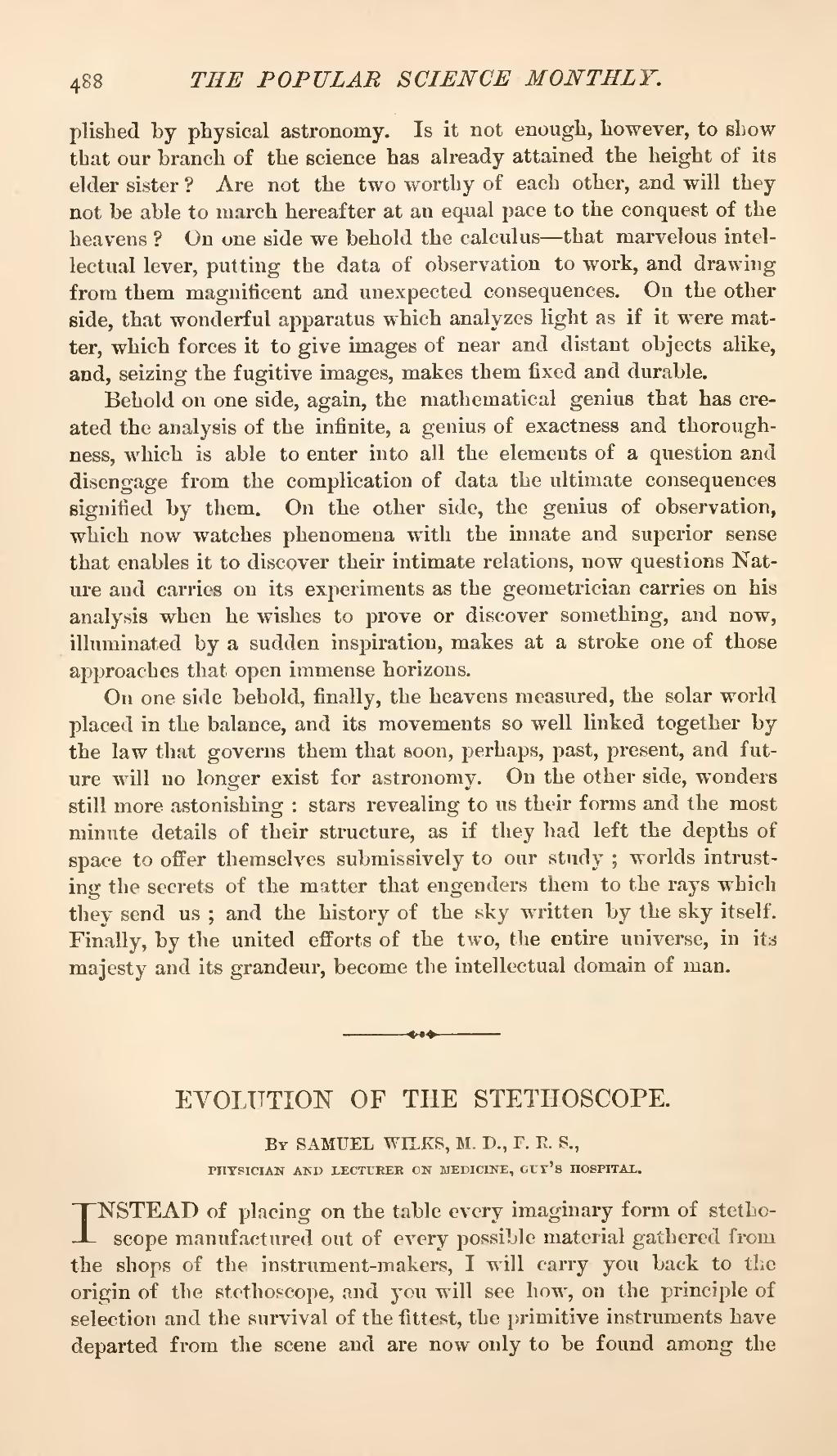plished by physical astronomy. Is it not enough, however, to show that our branch of the science has already attained the height of its elder sister? Are not the two worthy of each other, and will they not be able to march hereafter at an equal pace to the conquest of the heavens? On one side we behold the calculus—that marvelous intellectual lever, putting the data of observation to work, and drawing from them magnificent and unexpected consequences. On the other side, that wonderful apparatus which analyzes light as if it were matter, which forces it to give images of near and distant objects alike, and, seizing the fugitive images, makes them fixed and durable.
Behold on one side, again, the mathematical genius that has created the analysis of the infinite, a genius of exactness and thoroughness, which is able to enter into all the elements of a question and disengage from the complication of data the ultimate consequences signified by them. On the other side, the genius of observation, which now watches phenomena with the innate and superior sense that enables it to discover their intimate relations, now questions Nature and carries on its experiments as the geometrician carries on his analysis when he wishes to prove or discover something, and now, illuminated by a sudden inspiration, makes at a stroke one of those approaches that open immense horizons.
On one side behold, finally, the heavens measured, the solar world placed in the balance, and its movements so well linked together by the law that governs them that soon, perhaps, past, present, and future will no longer exist for astronomy. On the other side, wonders still more astonishing: stars revealing to us their forms and the most minute details of their structure, as if they had left the depths of space to offer themselves submissively to our study; worlds intrusting the secrets of the matter that engenders them to the rays which they send us; and the history of the sky written by the sky itself. Finally, by the united efforts of the two, the entire universe, in its majesty and its grandeur, become the intellectual domain of man.
| EVOLUTION OF THE STETHOSCOPE. |
By SAMUEL WILKS, M. D., F. R. S.,
PHYSICIAN AND LECTURER ON MEDICINE, GUY'S HOSPITAL.
INSTEAD of placing on the table every imaginary form of stethoscope manufactured out of every possible material gathered from the shops of the instrument-makers, I will carry you back to the origin of the stethoscope, and you will see how, on the principle of selection and the survival of the fittest, the primitive instruments have departed from the scene and are now only to be found among the

